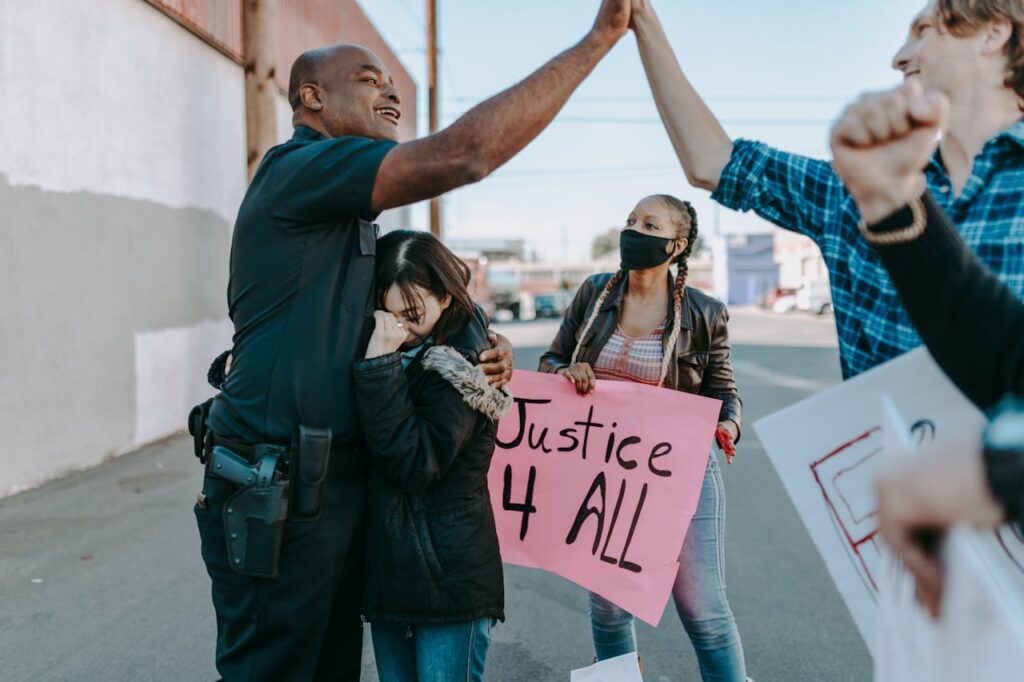
Trump Makes Us Feel Bad
You can’t ignore the overwhelming sense of anxiety that often creeps in when discussing Trump’s presidency, which is why Trump Makes Us Feel Bad.
It feels like division is everywhere, making it hard to trust those around you.
His rhetoric stirs up emotions, leaving you questioning not just the news, but the very fabric of your community.
What can you do to navigate this landscape of uncertainty and discord?
Let’s explore some paths forward.
The Anxiety of Uncertainty
As you navigate the tumultuous landscape of today’s politics, it’s easy to feel overwhelmed by the anxiety of uncertainty.
The constant barrage of news, tweets, and debates can leave you questioning what’s real and what’s exaggerated.
You might find yourself worrying about the implications of policies, the state of democracy, or the future of your community.
This uncertainty can weigh heavily on your mind, creating a sense of unease that’s hard to shake.
You may feel compelled to stay informed, yet that effort often leads to more anxiety.
Remember, it’s okay to take a step back.
Focus on what you can control, engage in constructive conversations, and prioritize self-care to help manage the stress that comes with these unpredictable times.
The Weight of Division
While you may try to navigate conversations about politics, the weight of division in society often makes it feel impossible.
Friends and family members become distant as differing opinions create tension.
You might find yourself avoiding discussions altogether, fearing heated arguments or hurt feelings.
Every news cycle seems to deepen the rift, pushing you further into your corner.
It’s exhausting to feel like you need to choose sides, and you often question whether it’s worth the effort to engage at all.
This division can lead to isolation, leaving you longing for connection amidst chaos.
Creating a bridge feels daunting, yet it’s essential to remember that understanding and empathy can still thrive, even in these turbulent times.
The Erosion of Trust
Trust, once a cornerstone of relationships and communities, has eroded significantly in today’s political climate.
You might notice how skepticism creeps into your conversations, whether with friends or family.
Misinformation spreads like wildfire, and you find it hard to discern fact from fiction.
When leaders manipulate facts for their gain, it trickles down, making you question the integrity of the people around you.
It’s not just politicians; even media outlets seem to play favorites, further deepening your distrust.
You’re left wondering who to believe and what’s genuine.
This pervasive uncertainty affects how you interact with others, leading to isolation instead of connection.
Rebuilding trust will take time, but recognizing its decline is the first step toward healing.
The Impact of Rhetoric
Rhetoric shapes our perceptions and emotions, often amplifying existing doubts and fears.
You might notice how words can ignite passion or incite anger, shifting your views on critical issues.
When political figures, like Trump, use charged language, they create a climate where division flourishes.
You may find yourself feeling more entrenched in your beliefs, even if they’re based on misinformation.
This kind of rhetoric can distort reality, making it harder to engage in constructive dialogue.
As you absorb these powerful messages, you may feel isolated from others who think differently.
Ultimately, the impact of rhetoric isn’t just about words; it’s about how those words influence your thoughts, feelings, and interactions within a broader societal context.
Coping With Cultural Discontent
As cultural discontent grows, it’s essential to find ways to cope with the overwhelming feelings it can evoke.
Start by acknowledging your emotions; it’s okay to feel frustrated or anxious.
Surround yourself with supportive friends who share your concerns, creating a safe space for open discussions.
Engage in activities that bring you joy—whether it’s art, music, or nature—these can provide a much-needed escape.
Consider volunteering or getting involved in local activism; taking action can empower you and foster a sense of community.
Lastly, practice mindfulness or meditation to ground yourself in the present moment, reducing stress.
In these challenging times, it’s easy to feel overwhelmed by anxiety and division.
Remember, though, that you’re not alone in this struggle.
By engaging in constructive conversations and prioritizing self-care, you can reclaim a sense of agency amidst the chaos.
Focus on building connections within your community, fostering understanding, and nurturing trust.
Together, you can counteract the negativity and work towards a more hopeful and united future for Trump Makes Us Feel Bad.